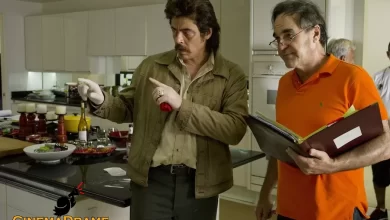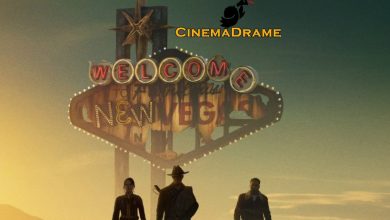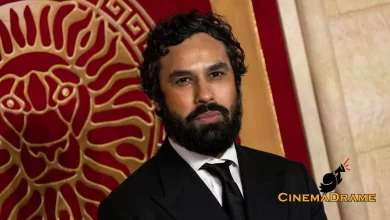Exclusive interview of Mohammadreza Zaeri with Sayyed Hassan Nasrallah
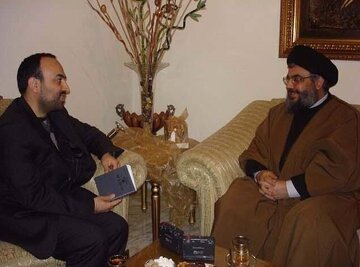
The book “Nasrallah” includes an exclusive interview and additional notes about the life and personality of the Secretary General of Hezbollah Lebanon, Sayyed Hassan Nasrallah, written by Mohammadreza Zaeri, which has recently been released to the publishing market.
According to Cinemadrame, speaking about the noble leader of the Resistance, martyr Sayyed Hassan Nasrallah, in Iran is different from any other country. The formal and polite media atmosphere of our country often leads to a misunderstanding or preconceived notions about the subject for the audience, whether intentionally or not.
The 33-day war between the Zionist regime and Hezbollah Lebanon, which some have firmly regarded as the largest war in modern history, made the beloved figure of young Arabs reach new heights of popularity. Elders like “Abu Raed”, who remember the memories of the Six-Day War, or more accurately, the six-hour war between the Arabs and Israel, recall that after the humiliating defeat, they spent several days bedridden in sickness. Afterward, they spoke to their young children about a great commander and victorious conqueror who shattered the pride and arrogance of the steel enemy, and whose name struck fear into the hearts of the enemy.
This is part of the text by Hojjatoleslam Mohammadreza Zaeri in the book “Nasrallah”. In the continuation, it is written: What you will observe in this collection is presented in several sections: The first section consists of interviews with Sayyed Hassan Nasrallah’s parents and himself, discussing aspects of his personal life, from childhood, adolescence, and his youthful efforts. Also included in this section are translations of two interviews from the French-language magazine LA REVUE DU LIBAN in Lebanon, and an interview with Iranian television that was broadcast in Arabic.
The second section includes a report on three of my meetings with Sayyed Hassan Nasrallah. It also contains an exclusive and intimate interview I conducted with him in 2006, a part of which was first published in the Nowruz special edition of Hamshahri newspaper. This time, the full interview text, along with translations of his discussions on personal life, family matters, and education, is presented in this collection.
The third section begins with translations of two editorials from Al-Safir newspaper and Al-Akhbar newspaper, as well as several articles written by the author about martyr Nasrallah. It also includes content from the interview, or material that was previously published on my blog, which appears to reflect the general atmosphere of contemporary Lebanon.
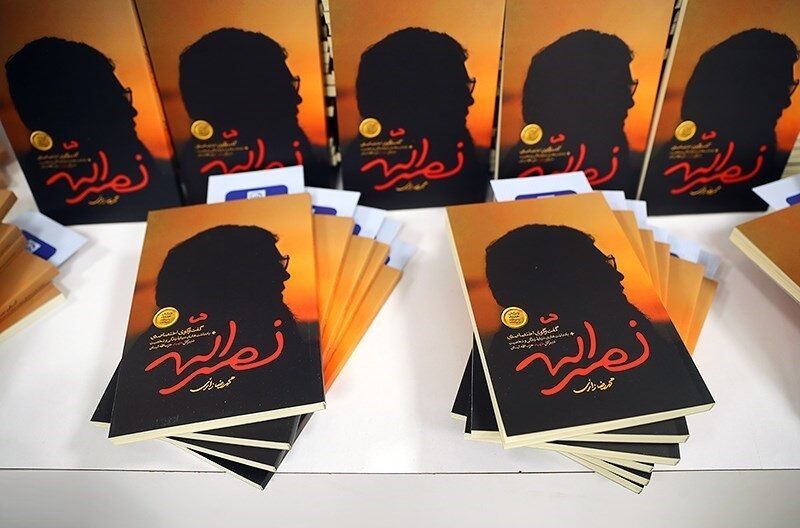
A part of the book; Interview with Iranian Television
Your life has been difficult over the past 25 years. The Resistance community is interested in knowing how you have managed these years despite all the security conditions imposed on your family. Have your family members become tired of this situation?
Over time, a person gets used to the circumstances. Initially, my family, especially my wife and children, got used to this situation. Our family is not very large, and most of my children are married and live independently. Only one child lives with us. Over the past 25 years, we have become accustomed to these security, political, and social conditions. In any case, we are content with God’s will and have no other option, because we have accepted responsibility and must continue it. This is the least we can do in the path of God.
I want to assure you and everyone who asks not to worry. Some people think that I and my family live a difficult and hard life and have grown tired of this situation. This is not the case. We solved these problems many years ago, and now this situation is very normal for us. Spiritually and emotionally, we live like other members of society.
You have five children, and one of them, Mr. Sayyid Hadi, was martyred, and one of the streets in Lebanon has been named after him. But what about your other children? What are they doing?
I’ll start with the youngest. My youngest son, Mohammad Mahdi, is about 15 or 16 years old and is studying in high school. Naturally, he is not yet married and is continuing his education. My eldest son, Mohammad Ali, is married and has two children and works in one of Hezbollah’s units. After him, my daughter Zainab is married and has four children, and she is studying at both a seminary and a university, living naturally in her own home.
The book “Nasrallah” has been published in 160 pages by Ehya Publishing.

